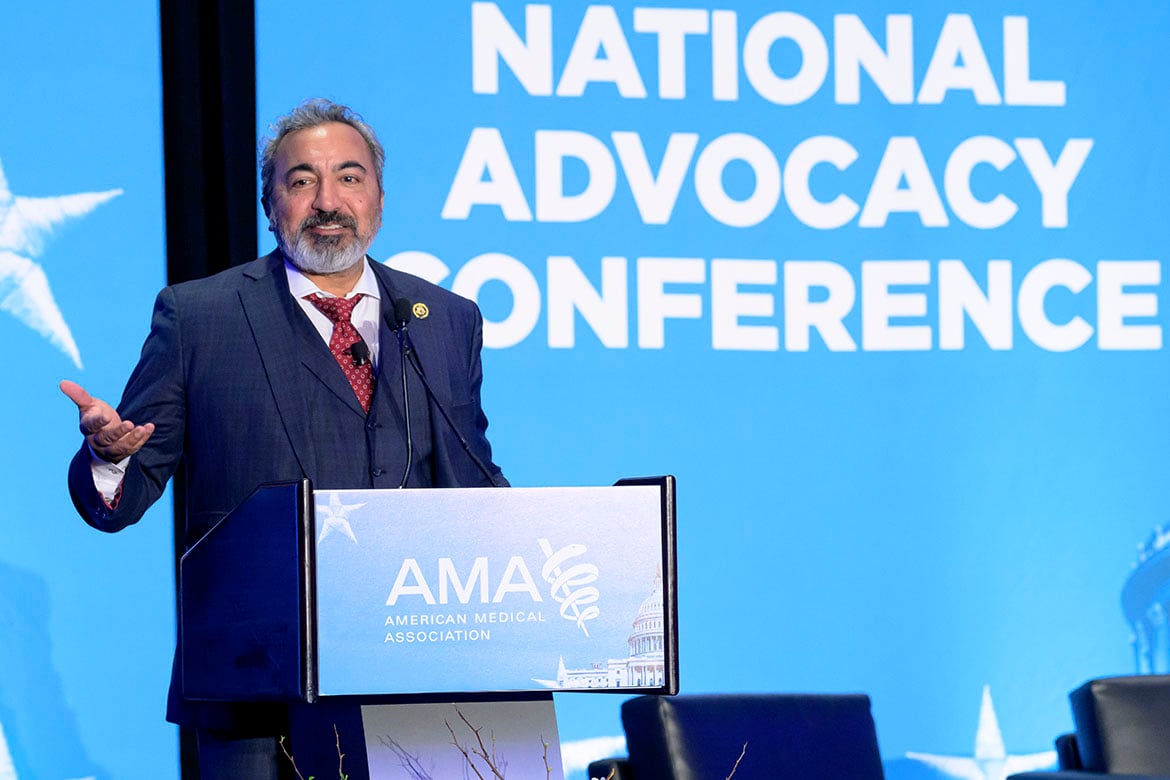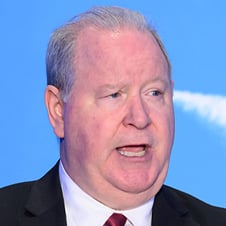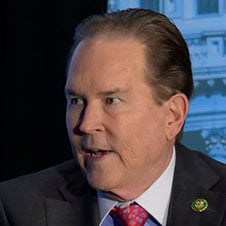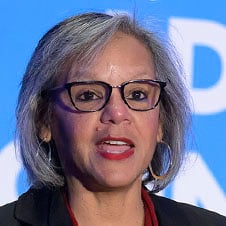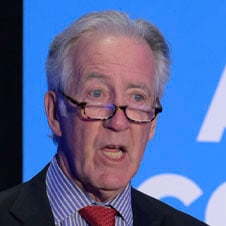While the Medicare physician pay cut dominated discussions with lawmakers who spoke at the AMA National Advocacy Conference last month, members of Congress are working on several other legislative solutions to problems plaguing doctors and patients.
Rep. Larry Bucshon, MD (R-Ind.), had the distinction of speaking twice at the event. First, during a regular 30-minute conference session and again when he was among the six people accepting an AMA Award for Outstanding Government Service.
Regarding the 2024 Medicare payment cut, Dr. Bucshon said that the good news was that the problems with Medicare physician pay has become “institutionalized,” meaning that all members of Congress are aware of them and know that actions are needed.
In other health care-related legislation, Dr. Bucshon was a co-sponsor of the bipartisan No Surprises Act aimed at preventing patients from being saddled with unexpected and expensive out-of-network charges, and he is a co-sponsor of the Safety from Violence for Healthcare Employees (SAVE) Act, H.R. 2584, which would impose penalties on those who assault or intimidate hospital employees.
The SAVE Act has hit a barrier because some House members think the problem should be solved locally, but Dr. Bucshon argued that “federalizing” such offenses has helped provide airline employees with needed protection—the kind of protection that physicians and other health professionals also deserve.
Dr. Bucshon’s work to reform the Medicare physician pay schedule’s budget-neutrality provision continues, and he is also a co-sponsor of the Strengthening Medicare for Patients and Providers Act (H.R. 2474), which would provide automatic updates to physician Medicare payment rates linked to inflation.
While physicians’ congressional allies were ultimately unsuccessful in rolling back the 2024 pay cut completely, Dr. Bucshon urged physicians to continue working with legislators on issues such as lifting limitations on physician hospital ownership.
“Keep up the pressure,” said Dr. Bucshon, a cardiothoracic surgeon who is not running for reelection. “Your advocacy is critical.”
The AMA Recovery Plan for America’s Physicians is rebuilding critical components of the medical profession by:
From the bedside to policy
Rep. Ami Bera, MD (D-Calif.), an internist and former Sacramento County chief medical officer, previously co-sponsored legislation with Dr. Bucshon to prevent Medicare payment cuts during the COVID-19 pandemic.
Dr. Bera, whose wife is also an internist, noted that Dr. Bucshon “has been a great partner to work with” on health issues, adding that “we need more doctors to run.”
“Unless you’ve been at the patient’s bedside or in an operating room or exam room, you’re not aware of health care’s complexity,” Dr. Bera said. Legislators who have, however, “understand how policy will translate to practice.”
AMA Immediate Past President Jack Resneck Jr., MD, talked with Dr. Bera about the need to add more Medicare-funded graduate medical education spots, and the congressman suggested that maybe highly profitable health plans should also have a role in funding residency training.
Health care industry consolidation and the acquisition of practices by private equity firms were other concerns raised in the discussion.
“They’re going to focus on profit and not patient care,” Dr. Bera said of private equity interests. “That will lead to more physician burnout and the loss of joy in practicing medicine.”
Workforce key to prevention
Rep. Vern Buchanan (R-Fla.) also spoke in favor of tying physician Medicare pay adjustments to the rate of inflation, growing the nation’s health workforce and placing more emphasis on preventive care.
“We don't have enough doctors, don't have enough nurses, don't have enough to do anything if we continue down this road,” said Buchanan, who is vice chair of the House Ways and Means Committee and chairs its health subcommittee.
Preventive care “is everything in terms of where we're at and where we need to go,” he added. “If you have a problem, you can cut it off at the pass.”
To that end, Buchanan has sponsored—and Dr. Bucshon has co-sponsored—H.R. 6693, the Lung Cancer Screening and Prevention Act.
He also spoke in support of bolstering telehealth and asked physicians for their “thoughts and ideas in terms of where you see this best going.”
Consolidation within the health care industry and preserving small independent practices is another concern of Buchanan’s. He noted how his nephew, a radiologist, was considering joining a practice in Sarasota, but chose a group in Las Vegas instead after the Florida organization was purchased by a hedge fund. Then, some six months later, the Las Vegas group was bought by the very same hedge fund.
Fix outdated budget rules
The Medicare pay cut’s negative impact on access was also mentioned by Rep. Robin L. Kelly (D-Ill.), a co-sponsor of H.R. 6371, the Provider Reimbursement Stability Act, which would reform the budget-neutrality provisions governing the Medicare physician pay schedule.
Kelly, whose district encompasses urban, suburban and rural areas, has championed initiatives to reduce health inequities. She chairs the Congressional Black Caucus Health Braintrust and is a member of the Digital Health Caucus.
Last year, she introduced H.R. 5568, the Community Access, Resources and Empowerment (CARE) for Moms Act, that would establish a grant program to develop sustainable “perinatal quality collaboratives” to “measurably improve perinatal care and perinatal health outcomes for pregnant and postpartum women and their infants.”
Kelly urged physicians to “keep advocating.”
“Your voice is heard and does matter,” she added.
Why Medicare matters
Massachusetts Rep. Richard Neal, the ranking Democrat on the House Ways and Means Committee, said that despite disinformation on science and medicine, members of Congress have great respect for physicians.
“The regard that we all have for you, professionally, is profound,” Neal said, adding that members of Congress try hard “to be your champions.”
Neal also mentioned the significant role health care plays in Massachusetts’ economy and noted that “the biggest employer in the state is Medicare.”
He spoke in favor—“sincerely, without any baloney”—of stopping Medicare physician pay cuts and raising doctors’ pay under the program. Neal also noted his support for prior authorization reform.
